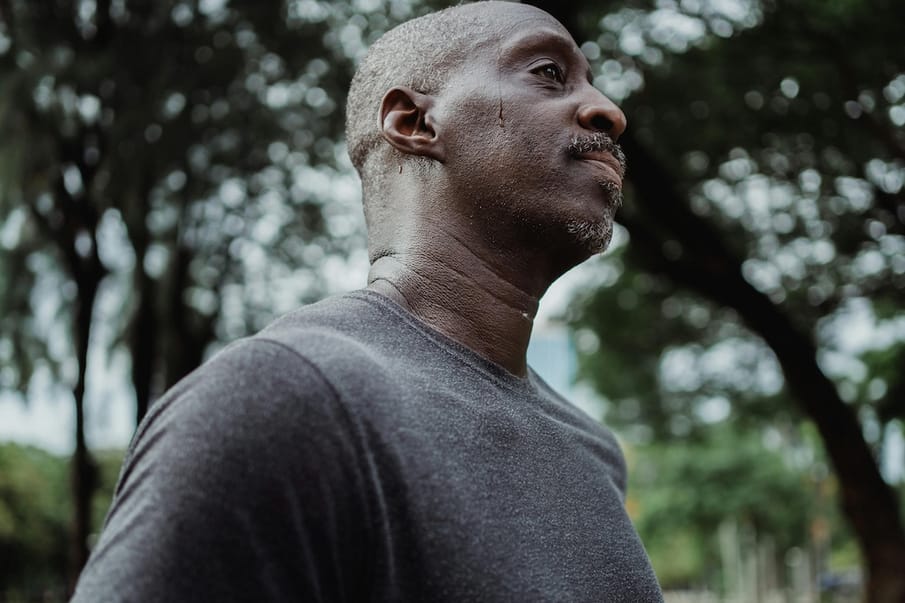Exploring why reaching ‘mid-life’ can be such a period of anxiety and uncertainty, and how to reframe our perspective to find a clear path forward
Mid-life crises are often parodied in the media by the idea of a middle-aged man buying a new Harley-Davidson he will hardly ever use. But this cliché does a disservice to a problem that impacts us, regardless of gender. For many people, this period of life can be a time of regret, remorse, uncertainty, and anxiety. It’s at this point, typically between the ages of 40 and 65, when we are forced to come to terms with the fact that our time on the planet is past its halfway point.
This can come with a disturbing degree of disappointment. We have thoughts like: Is this it? Is this all I’ve achieved? What am I going to do with the rest of my life? The trigger is often a significant life changing event – be that a divorce, losing your job, the loss of a loved one, or children flying the nest, leaving you with a feeling of redundancy and a lack of purpose. It can also coincide with the realisation that the covert contract between us and the world – that if we act correctly and with good intentions then things will work out just fine – wasn’t actually signed by both parties. The good news is that going through this phase is completely natural, and it is possible to change your perspective of mid-life, to view things in a different and more positive way.
A chance to reflect
Mid-life is best seen as a period of reflection and re-evaluation. The Hindu tradition has the useful concept of ‘Ashrama’ which are the four phases of life: brahmacharya (the student life, 0–25 years) which is the stage of learning; grihastha (the housebuilder life, 25–45 years) where we go through a stage of accumulation, settling down and building a home; vanaprastha (the reflecting life, 45–70 years), the phase of reflection and repurposing; and finally, sannyasa (the renounced life, 70+ years) where we start our return to where we’ve come from.
As you will notice, mid-life overlaps neatly with the third stage, the reflecting life, which may be why these troublesome questions start to appear in our heads. We likely have the house, the car, the family, and the job that everyone expects of us, and yet there remains a gap, a void, an emptiness. Something is missing. And this is where men and women differ slightly in the realisation of the need to repurpose – possibly to do with biological clocks. The onset of menopause comes as a signal to women that change is on its way, and adaptation is required. For men, there is no such signal, other than an aching back or gout. This can be why the mid-life shock hits men harder. They often don’t see it coming and react differently. This could be by drinking more, or buying status symbols that may or may not be suitable.
Mid-life doesn’t need to be a crisis
So how can we look at mid-life differently? A great place to start is by understanding our values – these are the things that are most important to us in life. The values exercise I use with clients contains more than 100 possible options, such as family, friendship, integrity, freedom, and achievement. This seemingly simple task can be both challenging and hugely rewarding, because many people have never taken the time to think about what really matters most to them. Much like when you are lost, you need some sort of navigation device to help you find the way, feeling lost (as can be the case with a mid-life crisis) requires a map or a compass (AKA your values) to help give you direction for your future.
To begin finding your values, think back to when you felt most content, and fulfilled. Writing down what springs to mind is a useful approach. Look to capture what you were doing, who you were sharing the experience with, and why that meant a lot to you. Identify the common themes, qualities, and virtues you felt or experienced. These will be a good indicator of your values. It can also be helpful to explore and discuss these experiences in more depth with someone else.
Once your values are understood, it’s then about reorienting life towards them, and overcoming the fear of stepping out of long-established patterns of behaviours or beliefs. For example, if travel and excitement are in your top five, but you’ve spent your last five holidays in Benidorm, maybe it’s time to dig out the atlas and choose somewhere new to explore.
Resolving the mid-life crisis doesn’t have to be about making huge changes, although that may be required for some. Rather, it’s about making incremental changes to your life, to ensure it’s heading in the right direction in a more purposeful way, that may have been lost over time on life’s journey.
You can find out more about our expert columnist on our Life Coach Directory.


Comments